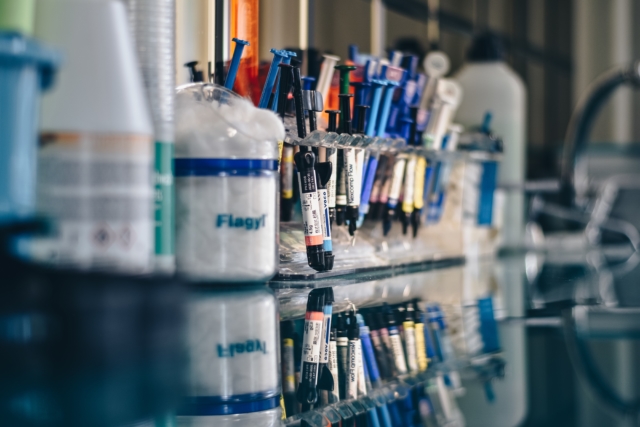What Is Medical Lubricant and Why Is It Used?
Medical lubricants reduce friction and minimize discomfort during a wide range of diagnostic, therapeutic, and surgical procedures. These sterile, often water-soluble gels help ensure both clinician ease and patient comfort while minimizing tissue trauma and lowering the risk of infection. Common brands include Surgilube®, K-Y Jelly, lignocaine-containing gels, and medicinal castor oil-based lubricants.
Though they often go unnoticed outside of clinical practice, lubricating jellies play a crucial role across disciplines, whether in gastroenterology, gynecology, urology, or emergency medicine.
When Should Medical Lubricants Be Used?
In most cases, lubricants are used during procedures that involve introducing medical instruments into the body through natural orifices. Their purpose is to ease insertion, protect mucosal tissues, and improve procedural accuracy.
Common Clinical Applications:
- Rectal Examinations: Digital rectal exams (DREs) and endoscopies are standard indications. A lubricant reduces friction and patient discomfort.
- Vaginal Examinations: Speculum insertion and manual pelvic exams require ample lubrication to minimize trauma.
- Catheterization: Indwelling and intermittent urinary catheter insertions require water-soluble, sterile lubricants to prevent urethral trauma and reduce the risk of urinary tract infections (UTIs).
- Feeding Tube Insertion: When placing nasogastric or orogastric tubes, lubricants assist in guiding the tube through the nasal passages and esophagus.
- Endoscopy: While not all endoscopic procedures require lubrication, inserting a flexible sigmoidoscope or rectoscope generally benefits from a lubricated surface.
- Ultrasound: Although transmission gels are technically not lubricants, they serve a similar role in external diagnostic imaging.
- Reproductive Health: Artificial insemination, IUD placement, and vaginal ultrasounds may require lubricants to reduce discomfort and support procedural success.
- Ocular Applications: In cases involving corneal abrasions or during eyelid surgeries, a bland ophthalmic lubricant may be applied before the eye is closed.
- Suppository Insertion: A water-based lubricant is recommended to prevent disruption of drug absorption. For example, petroleum-based jellies can inactivate bisacodyl suppositories.
For all procedures, only lubricants specifically labeled for medical use should be applied. Lubricants that are not sterile or designed for clinical settings can introduce pathogens or cause chemical irritation.
When Should Medical Lubricants Be Avoided?
Despite their widespread utility, not every clinical scenario warrants the use of lubricating jelly. Some areas of the body require careful handling that excludes moisture or oil-based products.
Avoid Lubricants in These Cases:
- Ear Examinations: When using otoscopes or auriscopes, adding lubrication can obstruct visibility and potentially affect the ear canal’s natural defense mechanisms. Moisture can foster microbial growth.
- Venipuncture and IV Placement: Lubricants can interfere with antisepsis and increase the risk of introducing contaminants during needle puncture.
- Certain Ophthalmic Procedures: Unless labeled specifically for ocular use, standard lubricants should never be used near the eyes.
A clear understanding of product compatibility and procedural requirements is key. Inappropriate use can lead to iatrogenic complications, rather than facilitating treatment.
Types of Medical Lubricants
Medical lubricants are available in various forms, each suited to specific procedures and patient profiles.
Water-Based Lubricants
- Most commonly used in general medical and gynecological settings
- Non-staining, easy to clean, compatible with latex and silicone
- Ideal for short-duration procedures
Oil-Based Lubricants
- Longer-lasting but can interfere with condoms or latex-based equipment
- More difficult to sterilize and clean
- Typically avoided in most sterile environments
Anesthetic Lubricants
- Contain lidocaine or similar local anesthetics
- Used in catheterizations and endoscopies to reduce discomfort
- Must be used with caution to avoid systemic absorption or allergic reactions
Ophthalmic Lubricants
- Designed specifically for use on or around the eyes
- Free of preservatives and irritants
- Used in surgeries or for treating dry eye conditions

Best Practices for Clinical Use
To maximize safety and performance, clinical teams must follow proper protocols when using medical lubricants.
Storage and Expiration:
- Store in a cool, dry area away from direct sunlight.
- Always check expiration dates; expired lubricants can degrade and pose a contamination risk.
Single-Use vs. Multi-Use Tubes:
- For procedures involving mucous membranes or sterile instruments, single-use packets are preferred to minimize cross-contamination.
- If a multi-use tube is used, be sure not to touch the applicator tip to any surface.
Documentation:
- For certain procedures, especially in urology and obstetrics, documentation of lubricant use (including the brand and lot number) may be required.
Regulatory Considerations
Medical lubricants are classified as medical devices by the FDA. Products marketed for sterile procedures must meet standards for:
- Biocompatibility
- Sterility
- pH and osmolality compatibility
- Packaging integrity
Facilities should maintain updated Safety Data Sheets (SDS) and follow OSHA standards for exposure and handling.
Lubricants and Infection Control
While lubricants can help reduce trauma-related infections, improper use or contaminated packaging poses a real risk.
To minimize this risk:
- Use sterile, single-use packets wherever possible
- Educate staff on aseptic technique
- Maintain clear labeling for lubricants with and without anesthetics
Medical Lubricant Selection Criteria
When selecting a lubricant, consider:
- Sterility requirements
- Presence of active ingredients (e.g., lidocaine)
- Compatibility with the procedure and instruments
- Potential allergenicity
- Storage needs and shelf life
Speak with your clinical team or infection prevention officer before standardizing lubricant types for procedures.
Final Thoughts: Medical Lubrication is Very Important
Though often overlooked, lubricating jelly is indispensable in many medical settings. Its use spans disciplines, improves procedural success, and reduces patient discomfort. But inappropriate application, or substitution with non-sterile or incompatible products, can undermine patient safety.
Being intentional about lubricant use, storage, and selection helps maintain clinical standards and enhances both patient outcomes and practitioner efficiency.
Looking to streamline your facility’s access to FDA-compliant surgical and diagnostic supplies?
Partner with Pipeline Medical to secure consistent, high-quality product delivery tailored to clinical needs.
This article is for informational purposes only and does not constitute medical advice. Please consult a licensed healthcare provider for clinical decisions related to lubricating jelly or other procedural materials.